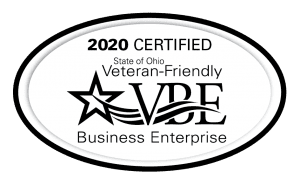With the COVID-19 pandemic still raging on, many companies have shifted to a remote worker model out of necessity. But even as things start to return to normal, it’s likely that remote workers are here to stay in some capacity. So what are your options? Should you continue working from home? Or would a hybrid or remote work arrangement be better suited to your needs?
Working from Home
Working from home is exactly what it sounds like – you work from the comfort of your own home, with no need to commute into an office.
Pros
The biggest advantage of working from home is that you can create your own schedule and work environment. If you’re someone who thrives on flexibility and hates being tied down to a 9-5, then being a remote worker is definitely the way to go. Additionally, working from home can save you a lot of money on things like gas, coffee, and business attire.
Cons
One of the biggest challenges of working from home is creating boundaries between your personal and professional life. It can be all too easy to start working early in the morning and then find yourself still working late into the night because you never left “the office.” Additionally, being a remote worker can be isolating and lonely, which can lead to feelings of disconnection and isolation over time.
Hybrid Working
Hybrid working is a mix of remote and in-person work. For example, you might work from home three days a week and come into the office for two days.
Pros
Hybrid working gives you the best of both worlds – the flexibility of working from home with the social interaction of coming into an office. If you find that you miss being around other people or need more structure in your day-to-day life, then hybrid working might be a good option for you.
Cons
The biggest downside of hybrid working is that it can be difficult to find a balance that works for both you and your employer. For example, if you want to work from home four days a week but your employer only wants you in the office two days a week, that can lead to some tension. Additionally, depending on your industry, there may not be enough work available to justify coming into the office even part-time.
Working Remote
Working remotely means that you never have to come into an office – you can live anywhere in the world and work as long as you have an internet connection.
Pros
The biggest advantage of being a remote worker is that it gives you complete freedom when it comes to where and when you work. If you want to take a three-month trip around Europe but still keep your job, no problem! All you need is an internet connection and a computer. Additionally, remote workers can often enjoy a more relaxed attitude when it comes to dress code and hours worked per day.
Cons
One major downside of being a remote worker is that it can be very isolating – after all, there’s no watercooler chat when everyone is spread out across different time zones! Additionally, if something goes wrong with your internet connection or computer, it can be difficult (and sometimes impossible) to get help right away since there’s no IT department on site.
When it comes to deciding on which works best for you, it just depends on your personal needs. If you value flexibility and freedom above all else, then working from home or remotely might be the way to go. But if you find that isolation starts to set in after a while or miss having face-to-face interactions with colleagues, then hybrid working might be a better fit. Talk to your employer about what arrangement would work best for both of you and give each option a try until you find what feels right!
VOC Associates
Looking to learn more about being a remote worker and how to make the most of your career? Check out the latest articles from VOC Associates! Our professional development resources will help you make the most of your career – no matter where you are or what you’re doing.







